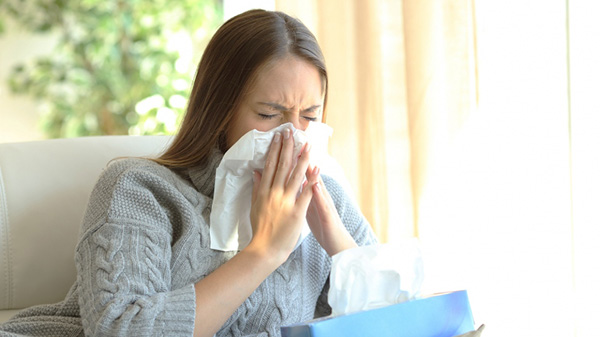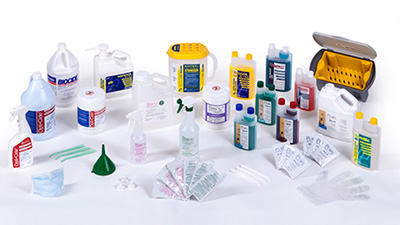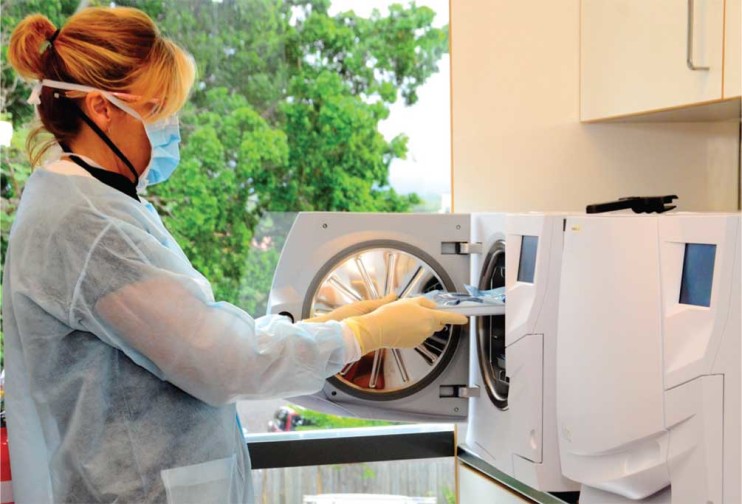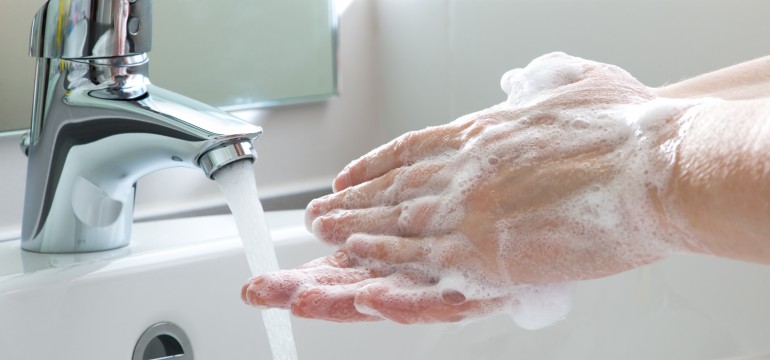Viruses can exist and spread in areas throughout the practice, whether it be through a careless cough or sneeze, or even from a desktop.
“Environmental hygiene is extremely important, because the influenza virus can survive on a hard surface for up to two days. If you don’t have a robust disinfection program in place at your practice, you are really putting yourself, your staff, the visitors, and the patients at risk for getting another cold or even picking up the flu, especially if they are unvaccinated.”
Patient management
A good place to start is by keeping sick people away from the healthy ones, as much as possible.
“What pediatricians have done, and what CDC recommends, is that you have a sick side and well side in the reception room,” says Jackie Dorst, RDH, BS, an infection prevention consultant and speaker. “Patients who are sick sit over on the ‘sick side’, so you congregate them together and then the children that are well are over on the well side, so that they are not exposed to the sick children.”
Dental practices and the pediatrician’s office are, obviously, two different things. But while those practices may seem like an apples-to-oranges comparison, the same infection prevention principles can still apply.
Products
The product used for surface disinfection matters.
“You want to make sure that you are selecting products that are EPA-registered healthcare disinfectants,” Dr. Bell-West says. “Typically, any product that is labeled as a disinfectant is going to be regulated by the Environmental Protection Agency. Secondly, you want to check the back label to make sure that the product is EPA-registered to kill the influenza virus. There are different strains of influenza virus that are out there. Typically, most products on the market will have claims against Influenza A virus and some products on the market also have claims against Influenza B virus, which are the most common viruses that cause flu in humans.”
A common misstep, she observes, is using a consumer product rather than a healthcare-grade disinfectant.
Protocols
How the practice is disinfected is just as important as the products used.
“Unfortunately, if the whole team is not aware of this, and if the doctor is not empowering the team with it, we can run the risk of, ‘Oh, that patient showed up and we’ve got an hour set aside in the schedule, and if we reschedule them, we’re going to lose that production time,’” Dorst says. “Well, losing that one-hour production time can save you many, many hours of having a team member that’s sick and has to be away from work for two or three days, or you have the flu that runs throughout the office. CDC recommends that if you’re sick, don’t come to work…”
Practices are also advised to have written, standardized protocols that everyone follows.
Vaccines
A national trend that can, predictably, lead to the spread of influenza is forgoing vaccinations. Healthcare employers are only mandated to provide one vaccination, but healthcare workers are advised to get others.
“OSHA only requires employer offer the Hepatitis B vaccination, and that provides protection against hepatitis,” Dorst observes. “The other vaccinations are recommended by CDC.”
-
Influenza
-
MMR
-
Varicella
-
Tetanus, diphtheria, pertussis
-
Meningococcal
Skipping a vaccine puts not only the unvaccinated at risk, but can spread to the rest of society.
Hand hygiene
Maybe the most important piece of advice is not overlooking basic infection prevention practices, like hand hygiene.
“Hand hygiene is so key in terms of preventing the spread of germs,” Dr. Bell-West says. “About 80 percent of infectious diseases are spread via contaminated hands, so it’s really important that you’re doing that. Make sure that your staff has access to high-quality hand care products that are designed for use in healthcare settings – that they’re going to be effective, but they also have aloe and other emollients in them, just to make sure that they don’t dry out their hands. As we are entering into a cold and flu season, there’s less humidity in the air and skin is your best barrier against getting an infection. And if your skin gets dry and cracked, then you’re putting yourself at risk. Making sure that you’re using a moisturizing hand soap can really help with that.”







